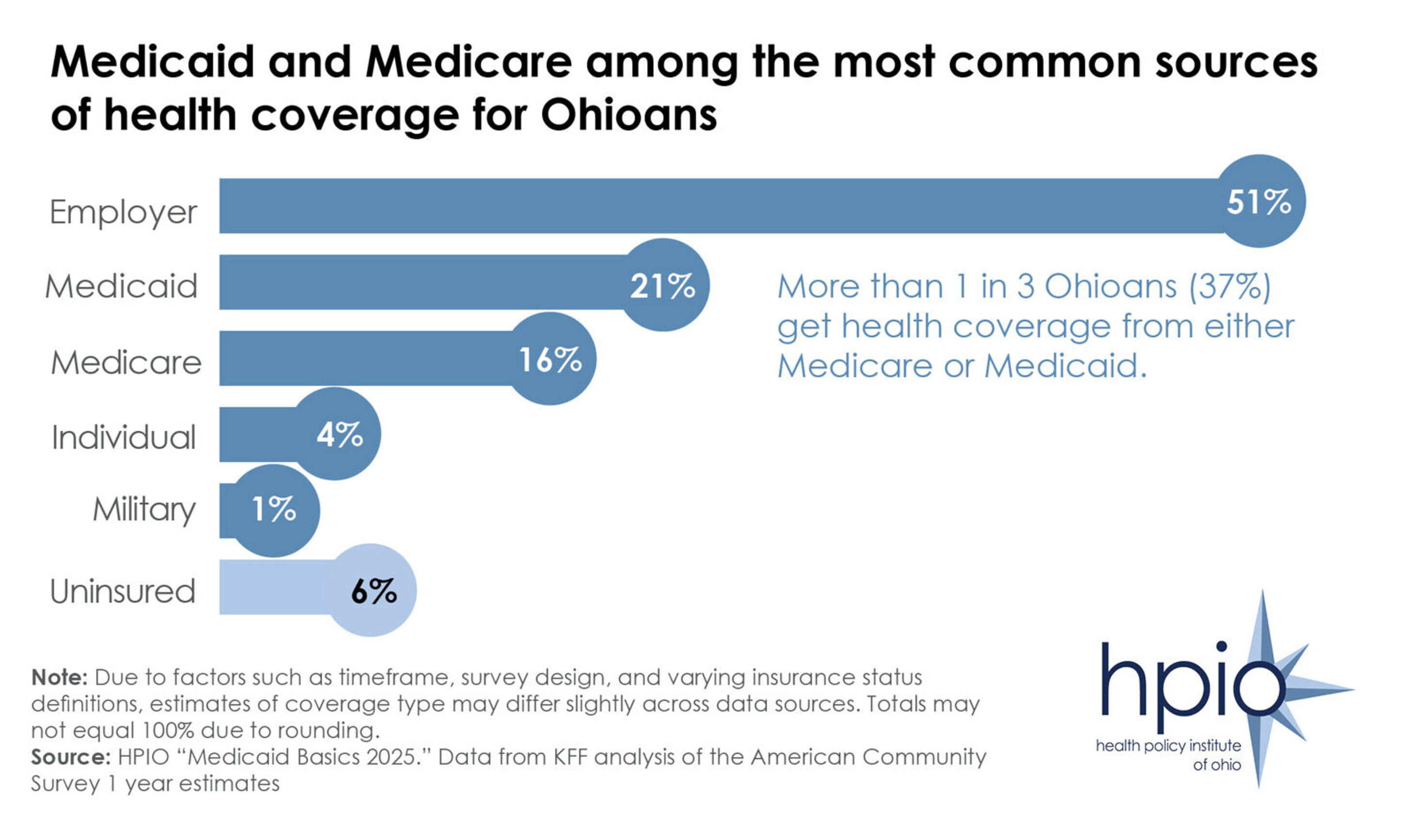- Posted
- July 25, 2025
Graphic of the week: 60th anniversary of Medicare, Medicaid

Click to enlarge
Next Wednesday, July 30, is the 60thanniversary of the Social Security Act of 1965, legislation signed by President Lyndon B. Johnson that created Medicare and Medicaid.
Data included in HPIO’s “Ohio Medicaid Basics 2025” shows that more than 1 in 3 Ohioans have health coverage through either Medicare or Medicaid, as illustrated above.
Medicaid is a federal-state partnership in which the federal government sets guidelines and provides partial funding, with each state designing and administering its own program. Meanwhile, Medicare is fully administered and financed by the federal government. Medicare primarily serves Americans ages 65 and older, while Medicaid serves low-income individuals of all ages and other groups determined to be eligible.
Many Ohioans who have low incomes enroll in Medicaid, the second-most common source for coverage in Ohio, in part because other health insurance coverage is unavailable, too expensive or does not provide coverage for needed services, such as long-term services and supports.
Medicaid requires state policy decisions, plays a significant role in coverage for Ohioans and accounts for a substantial portion of the state budget (in state fiscal year 2024, federal and state expenditures on Medicaid accounted for about 39% of Ohio’s state operating budget). Because of this, analyzing and explaining the program has been central to HPIO’s mission since its founding. Since 2005, HPIO has produced Ohio Medicaid Basics every two years so that state policymakers and those who influence them have a better understanding of the program.
You can access HPIO’s work related to Medicaid, healthcare access and coverage by clicking here.
